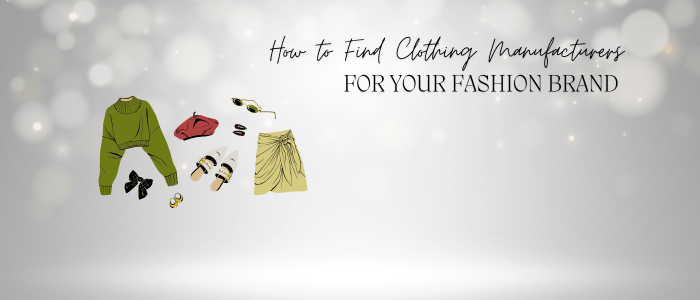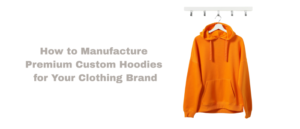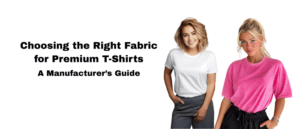Launching a fashion brand is exciting, but one of the biggest challenges new entrepreneur’s faces is finding the right clothing manufacturer. Your choice of manufacturer determines not only the quality of your products but also how customers perceive your brand. A poor decision can lead to delays, inconsistent quality, or high costs that damage your reputation before you even begin.
The need for clothing manufacturers is driven by the massive, growing global apparel market, which is expected to reach $1.84 trillion by 2026, fueled by increasing demand in emerging markets and the growth of e-commerce. In such a competitive and fast-evolving landscape, securing the right partner is more critical than ever.
In 2026, with consumer expectations at an all-time high and competition fiercer than ever, choosing a trusted manufacturing partner is critical. Brands need suppliers who deliver consistent quality, flexible production, and transparent communication. That’s where experienced manufacturers like Argus Apparel play a role. We help startups, private labels, and grow fashion brands.
Why Choosing the Right Manufacturer Matters
The right manufacturer does more than just produce garments; it becomes a strategic partner in your brand’s long-term growth. Every decision you make in manufacturing impacts cost, quality, delivery speed, and customer satisfaction.
Here’s why your decision matters:
Quality Control:
Consistent quality is the foundation of customer loyalty. Poor stitching, fabric defects, or inconsistent sizing can damage your reputation, increase product returns, and lower customer trust. A reliable manufacturer puts strict quality control systems in place to ensure every item meets your brand standards.
Brand Reputation:
Your customers may never meet your manufacturer, but they will judge your brand based on the product. Even the most creative designs lose value if executed poorly. High-quality production helps build credibility and positions your label as trustworthy and professional in the eyes of consumers.
Scalability:
The right partner can grow with you. As your orders increase, they should be able to manage larger volumes without compromising on timelines or quality. A lack of scalability can prevent you from meeting demand, leading to missed sales opportunities and dissatisfied customers.
Cost Efficiency:
While upfront pricing is important, long-term cost efficiency matters more. A dependable manufacturer minimizes waste, reduces errors, and streamlines production. Thus, helping you save money as your business grows.
Innovation & Flexibility:
Many modern manufacturers also support product development, fabric sourcing, and technical improvements. Working with such a partner ensures your brand can innovate and adapt to fashion trends quickly.
On the other hand, the wrong choice can result in hidden costs, miscommunication, delays, and damaged products that stall your business. For startups, this often means losing valuable time and money during a critical launch period. That’s why investing time into researching and carefully choosing your manufacturing partner is non-negotiable.
Different Types of Clothing Manufacturers
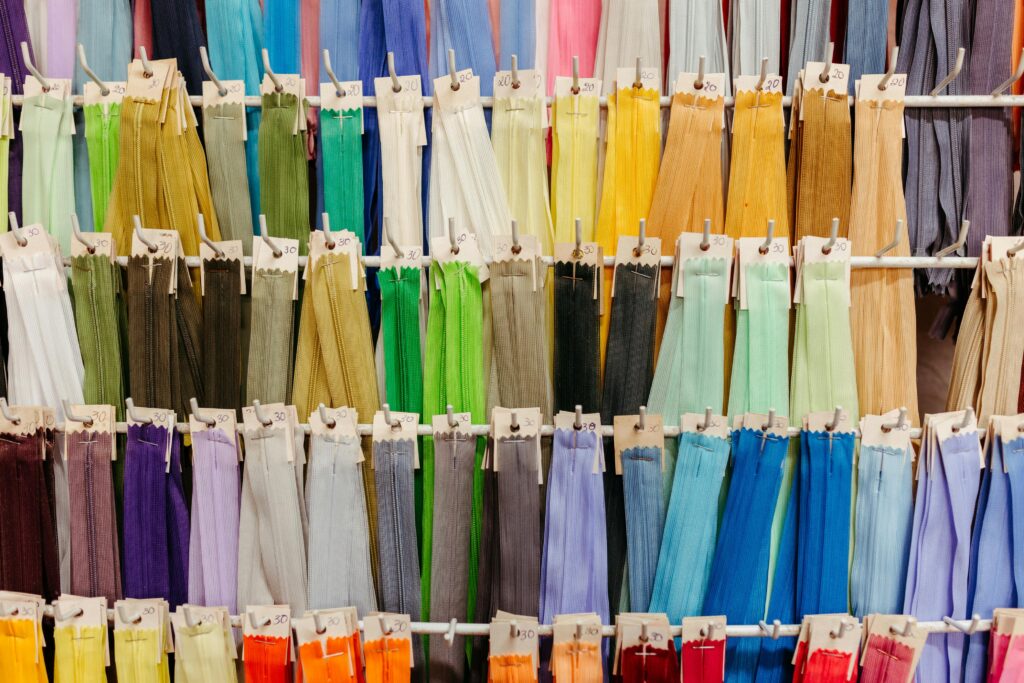
Before starting your search, it’s important to understand the types of clothing manufacturers available in 2026. Each type comes with its own benefits, challenges, and suitability depending on your brand’s goals, budget, and stage of growth.
Understanding these types of manufacturers will help you identify the best fit for your fashion brand, whether you’re seeking speed, affordability, originality, or specialized expertise.
1. Cut & Sew Manufacturers
Cut & sew facilities create garments from scratch based on your tech packs, sketches, or digital designs. They manage pattern making, fabric cutting, and sewing to your exact specifications. This option is best for brands seeking original collections, unique silhouettes, or complete control over materials and finishes. However, it usually comes with higher costs and longer lead times.
2. Private Label Manufacturers
Private label suppliers offer ready-made designs that you can customize with your logo, labels, or slight adjustments. This path is cost-efficient, quick launch, and ideal for entrepreneurs evaluating the market or running online boutiques. The trade-off is limited design flexibility—you’ll often work within their existing templates rather than building from scratch.
3. Full-Service Manufacturers (like Argus Apparel)
Full-service partners manage every stage of production: design support, fabric sourcing, sampling, bulk manufacturing, quality control, and packaging. This is the most comprehensive option and suits startups without technical expertise, as well as established brands looking for end-to-end efficiency. Collaborating with a full-service partner ensures smoother communication and less need to coordinate multiple suppliers.
4. Specialized Manufacturers
Specialists focus on categories—such as sportswear, streetwear, lingerie, denim, or luxury fashion. They bring expertise in technical fabrics, performance finishes, or premium detailing. Partnering with a specialized manufacturer ensures your garments meet industry standards for that niche and appeal directly to your target audience. While they may cost more, their experience often results in superior quality and innovation.
Key Factors to Consider When Choosing a Manufacturer
When searching for a clothing manufacturer, keeping the following factors in mind will help you avoid costly mistakes and align with the right partner for long-term growth:
1. Minimum Order Quantity (MOQ) and Scalability
Many manufacturers require high MOQs, which can be unrealistic for startups with limited budgets. opt for a partner who offers flexible, low-MOQ options, giving you the freedom to evaluate the market without overcommitting. As your brand grows, the same manufacturer should be able to scale up production seamlessly. For example, some full-service manufacturers support brands with 50-piece test runs and scale to thousands as demand increases.
By weighing these factors carefully, you can narrow your search to manufacturers that not only meet your current needs but also support your brand’s growth and values overall.
2. Location: USA vs Overseas
- USA Manufacturers: Provide faster shipping, smoother communication, easier on-site quality checks, and the marketing advantage of the “Made in USA” label. They often suit premium brands targeting local markets.
- Overseas Manufacturers: Typically, more cost-effective, and able to offer a wider variety of fabrics and finishes. However, they involve longer lead times, higher shipping, and customs costs, and potential cultural or time-zone barriers. Choosing between USA and overseas depends on your budget, timelines, and brand positioning.
3. Quality Standards & Certifications
Always ask whether a manufacturer follows recognized certifications such as ISO 9001 for quality management, WRAP for responsible production, or Fair Trade for ethical labor practices. Certifications function as proof of consistency and give your customers confidence that your products are safe, dependable, and ethically made.
4. Pricing and Budgeting
Low prices can be tempting but often mean compromised quality or hidden expenses. Consider the complete cost structure, including shipping, customs duties, tariffs, packaging, and even potential rework costs from defective products. A sustainable pricing model should balance affordability with durability, brand positioning, and long-term profitability.
5. Communication & Support
Strong communication ensures smoother workflows and fewer surprises during production. Look for manufacturers who provide detailed responses, regular updates, and initiative-taking solutions when issues arise. Poor communication is often an early red flag for future production challenges.
6. Sustainability Practices
Today’s consumers value eco-friendly and ethical fashion. Partnering with manufacturers that adopt sustainable sourcing, reduce waste, and ensure fair labor conditions strengthen your brand’s image and resonate with conscious shoppers. For instance, suppliers who use organic cotton, recycled polyester, or water-saving dyeing processes can set your brand apart in a competitive market.
Steps to Find the Right Manufacturer in 2026
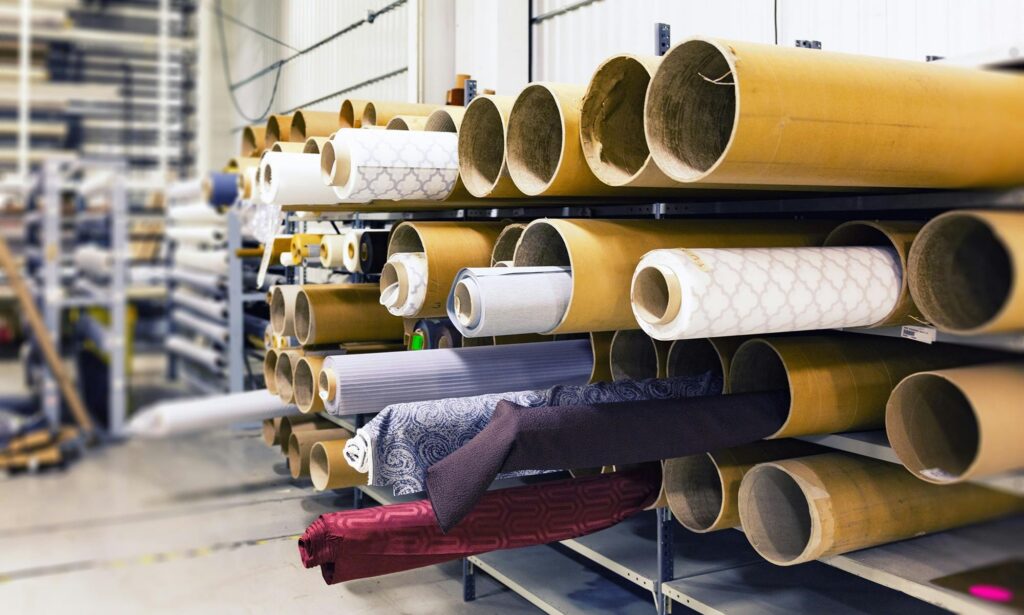
Finding the right manufacturing partner takes research and strategy. In 2026, the process involves more than simply picking a name from a directory, you need to evaluate compatibility, reliability, and long-term potential. Here’s a step-by-step guide to follow:
Step 1: Define Your Product Requirements
Clarity at this stage saves time later. Write down the type of garments you want to produce, your preferred fabrics, colors, and finishes, as well as technical details such as stitching styles or trims. Include size ranges, target market, and expected retail price points. The more precise your requirements, the easier it is to identify manufacturers who can deliver. Brands that skip this step often face miscommunication and costly revisions.
Step 2: Research Potential Manufacturers
Start by searching online directories and B2B marketplaces like Alibaba, Makers Row, and Kompass. Explore LinkedIn groups, industry forums, and fashion trade shows to discover options beyond the obvious. Networking with fellow entrepreneurs or mentors can also lead you to reliable referrals. When doing research, check each manufacturer’s years of experience, client list, and specialization to ensure they align with your brand’s goals.
Step 3: Evaluate Manufacturer Capabilities
Once you have a shortlist, dig deeper into what each manufacturer can provide. Ask about their production capacity, turnaround times, and areas of expertise. Review their past work or portfolio to confirm they’ve produced styles like yours. Inquire whether they support fabric sourcing, pattern making, or custom embellishments. Pay attention to their sampling process and how they manage revisions, this often indicates how flexible they’ll be in larger production runs.
Step 4: Request Samples & Compare Quality
Never rely on promises alone. Request physical samples to evaluate workmanship, fabric quality, and diligence. Evaluate durability by washing, stretching, or wearing the samples. Check sizing consistency across pieces, as inconsistencies here often signal future issues. If you’re considering multiple manufacturers, order samples from each and compare them side by side. This small investment prevents costly mistakes when ordering bulk.
Step 5: Negotiate Terms & Build a Relationship
Once you’ve identified the best fit, discuss every detail clearly: pricing structure, payment terms, shipping methods, packaging, and lead times. Don’t shy away from asking about penalties for delays or defective items. Building transparency early reduces misunderstandings later. More importantly, focus on cultivating a professional relationship—manufacturers are more likely to prioritize brands that communicate respectfully, pay on time, and collaborate consistently. A strong relationship can open doors to better pricing, faster turnaround, and preferential treatment as you grow.
By following these steps thoroughly, you reduce the risks of delays, quality issues, and financial losses—laying a solid foundation for long-term success with your clothing brand.
Common Mistakes to Avoid
Many startups fall into the same traps when searching for manufacturers. Being aware of these mistakes can save time, money, and frustration:
- Choosing Based on Price Alone
The cheapest option may look attractive upfront, but it usually comes with hidden costs such as poor fabric quality, weak stitching, or missed deadlines. A slightly higher investment in a reliable manufacturer can prevent expensive errors later.
- Ignoring Communication and Support
Strong communication is essential for smooth production. If a manufacturer is slow to respond, vague in their answers, or unwilling to clarify processes, expect delays and misunderstandings down the line. Always prioritize responsiveness and clarity.
- Skipping Quality Checks
Sampling is not optional. Brands that skip this step often end up with inconsistent sizing, color variations, or defects in bulk production. Testing samples ensures that the manufacturer can deliver on promises before you commit to larger orders.
- Overlooking Lead Times
Many new brands underestimate how long production and shipping can take. If timelines are unrealistic, product launches may be delayed, hurting your sales and marketing campaigns. Always confirm lead times early.
- Failing to Consider Scalability
Some manufacturers may be able to manage small runs but lack the capacity to scale as your brand grows. Partnering with a manufacturer who can expand production with your demand ensures long-term stability.
By avoiding these common mistakes, you set a stronger foundation for building a successful and sustainable fashion brand.
Why Work with Argus Apparel?
At Argus Apparel, we help fashion startups and established brands bring their ideas to life with confidence. Here’s why brands choose us:
- USA-Based Manufacturing: With low MOQ options and a full-service approach, we’re ideal for both new labels and established businesses.
- Customization & Flexibility: From fabric sourcing to design execution, we provide complete flexibility, so your products reflect your brand identity.
- Sustainability & Quality: Our team is committed to ethical practices, premium fabric sourcing, and strict quality control at every stage of production.
Whether you’re launching a private label, building an e-commerce brand, or scaling a DTC apparel line, Argus Apparel offers the expertise and infrastructure you need to succeed.
Final Thoughts
Finding the right clothing manufacturer in 2026 requires strategy, research, and clear communication. From defining your product requirements to evaluating samples and negotiating fair terms, every step is crucial in building a long-term partnership that supports your brand’s growth. Startups and small businesses must balance affordability with quality and reliability, avoiding common mistakes such as chasing the lowest price or overlooking communication.
At the heart of every successful fashion brand is a manufacturer that not only produces garments but also acts as a true partner on the journey. That’s where Argus Apparel, a private label manufacturer stands out, by offering guidance, flexibility, and the expertise needed to scale. Whether you are launching your first collection or expanding your product line, choosing a manufacturer who understands your vision will set the foundation for your success.
Ready to turn your fashion brand idea into success? Contact Argus Apparel today for a custom manufacturing solution tailored to your needs.

